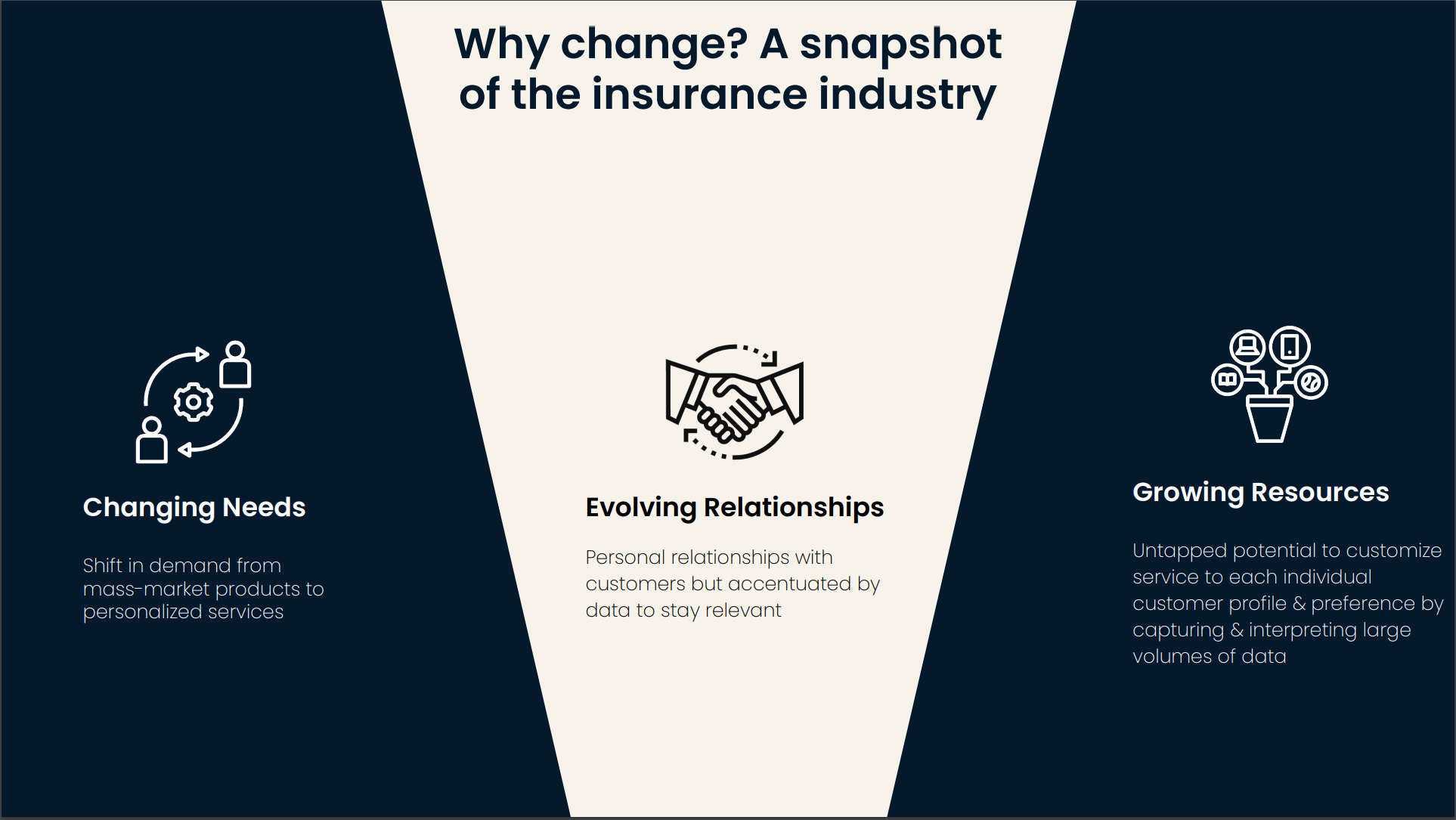Today, high-performing insurance organizations are leveraging data science to advance their businesses in a competitive environment. In a recent webinar, Sudaman Thoppan Mohanchandralal, Regional Chief Data and Analytics Officer at Allianz Benelux discussed the current state of data science in insurance and exciting use-cases of machine learning in the industry.
Why Data Science is Valuable in the Insurance Industry Today
Recently, the industry’s demand has shifted to more personalized services rather than those that appeal to mass markets. This McKinsey report describes this shift Sudaman refers to. It explains how deep one-to-one relationships can be built with consumers at scale through strategic personalized marketing and service offerings.
These changes in needs and relationships are made possible by the massive growth of available data for individual customers as well as advances in machine learning and resources. In this article, IBM discusses how insurers observe a 22-25% improvement in time to profitability when creating personalized services relative to mass-appealing products. These products can only be developed at scale using machine learning.


The state of data science in insurance
Sudaman explains in the webinar that machine learning provides value when it is leveraged for predictions rather than causal inference and when the problem is sufficiently self-contained. As of today, machine learning fails when organizations attempt to use these algorithms as a crystal ball or black box rather than a tool to inform humans on directions to explore. Here’s a glimpse of some of the use-cases covered in the webinar:
1. Fraud Detection in insurance Claims
Machine learning performs very well on prediction tasks with a lot of data. Therefore, fraud detection is a great use case to train and deploy a classification algorithm such as logistic regression or a decision tree. This system can be used to flag claims that look suspicious. This makes fraud prevention significantly more manageable for an analyst as it will augment their workflow by surfacing the claims most likely to be fraudulent.
2. Identifying Customers for Retention Activities
Another important use case for improving the scale of any organization is improving customer retention. Machine learning can help to identify which customers are at risk of leaving your organization. Identifying these customers at scale and providing incentives for them to stay will lead to better customer lifetime value in the long run—enabling deeper personalization.
3. Optimizing Pricing with Time Series Data (Risk Premium Modeling)
Understanding a customer’s risk to file a claim is critical in determining the correct price and structure of a plan to provide them. All insurers are doing this at some level. With the expansion of available data, model accuracy to determine a customer’s risk profile can be improved to offer more competitive pricing to individuals.
4. Future Disease Prediction
Similar to the previous use case, understanding future disease risks is critical in portfolio optimization and pricing. discusses how the insurance industry will have to pay out upwards of $100 billion in COVID-related claims. While predicting the pandemic in advance would have been challenging, understanding and predicting health outcomes will enable insurers to prioritize and personalize their services.
5. Portfolio Optimization
The final use case we will discuss is portfolio optimization. Portfolio management consists of a few steps: identifying meaningful groupings of risk to be analyzed, informing optimal decisions, and identifying opportunities. Each of these subtasks is solvable through data science optimization techniques.
If you want to learn more about the future of data science in insurance, make sure to tune in to the webinar here.

